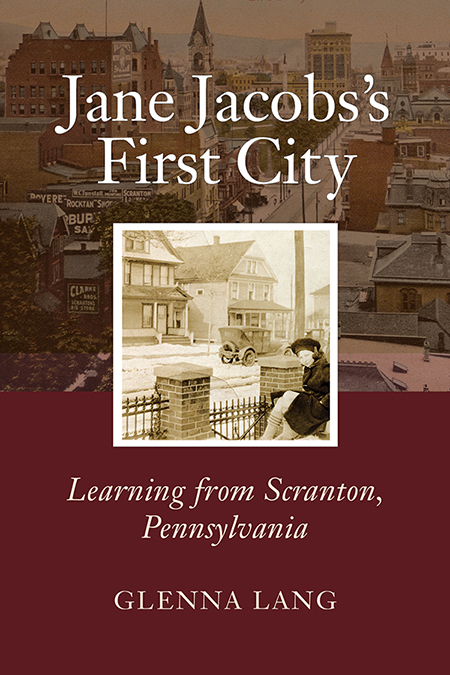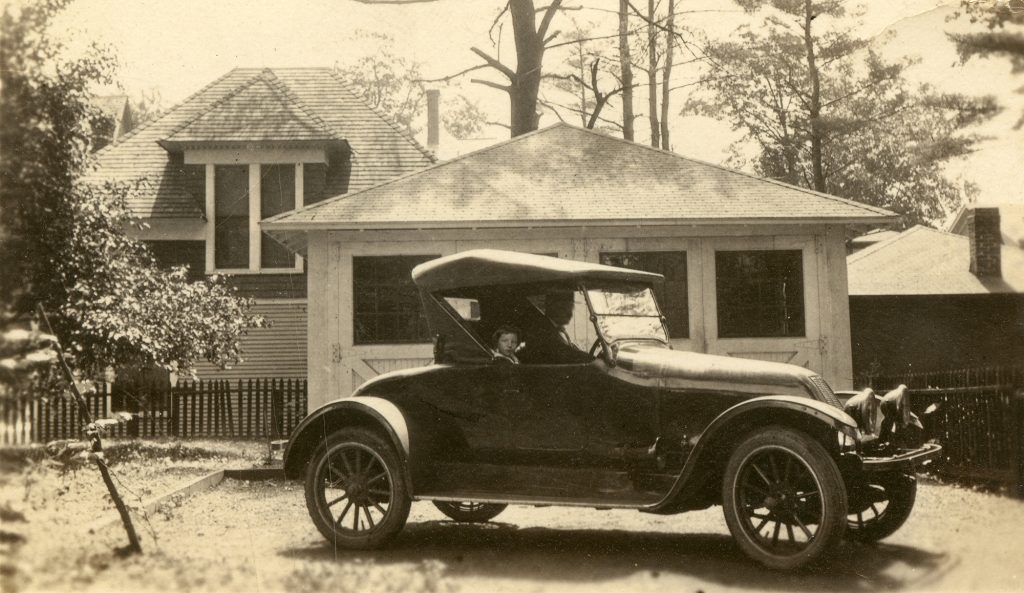ADVANCE PRAISE

Jane Jacobs’s First City is a brilliant work of scholarship that convincingly shows how Jane Jacobs’s canonical works developed in the historic, mid-sized city of Scranton. It is clearly a labor of love, of great dedication, and filled with appreciation for all of its subjects, not only Jane Butzner [Jacobs]. The overwhelmingly new material, brilliantly contextualized, will have a lasting impact.
—Peter Laurence, Clemson University, author of Becoming Jane Jacobs
A fascinating and wonderfully written book that shows how Scranton played an enormous role in shaping Jane Jacobs’s thinking about urban life. It reframes not only who Jacobs was, but also what Scranton was in the early 20th-century.
—Mark Hirsch, senior historian, National Museum of the American Indian, Smithsonian Institution
In your hands is a cornucopia of discoveries, one excavation after another about how and what Jane Jacobs came to know about the connection between cities and the people who live in them. Here’s a snapshot of five-year-old Jane in her father’s open-air car, in Scranton—Jane in a car for goodness’ sake—on the street where she grew up, or a description of teenager Jane at the top of the stairs, listening to her father with his medical colleagues in the living room below, discussing the new ideas of Dr. Freud. These were secrets until Glenna Lang dug them out. What luck!
—Max Allen, Jane Jacobs’s producer for the Massey Lectures on CBC Radio and editor of Ideas That Matter: The Worlds of Jane Jacobs
This book is well written and wise. I felt a nostalgic yearning for a Scranton of this era, which is the America that produced my mother’s side of the family. It restores and presents Scranton in all its subdued glory with ordinary men, women, and children going about their daily business, creating, as though Muybridge had photographed it, the mosaic of Scranton life, with its resplendent color and texture, so deeply American. We need to think about what this means to us, especially at the present moment.
—Chandos Brown, professor of History and American Studies, College of William and Mary
Glenna Lang paints a compelling picture of Scranton’s rich history and community-centered way of life, and how these molded Jane Jacobs’s influential ideas and writing about cities. Jane Jacobs’s First City illustrates Scranton as an attractive place to raise a family, make an impact in the community, and develop lifelong relationships—all of which remain true to this day, and which we continue to foster and embrace.
—Paige Gebhardt Cognetti, Mayor, City of Scranton
Few would dispute that Jane Jacobs has changed the way generations see and experience cities. But no one before Glenna Lang has probed so fully where Jacobs herself gained that vision. In this beautifully composed, deeply researched, and fascinating twin portrait of Jacobs and her hometown of Scranton, Lang reveals how this medium-size city built on anthracite coal shaped an urban ideal that would ultimately reverberate worldwide.
—Lizabeth Cohen, Harvard University, author of the Bancroft Prize-winner Saving America’s Cities: Ed Logue and the Struggle to Renew Urban America in the Suburban Age
